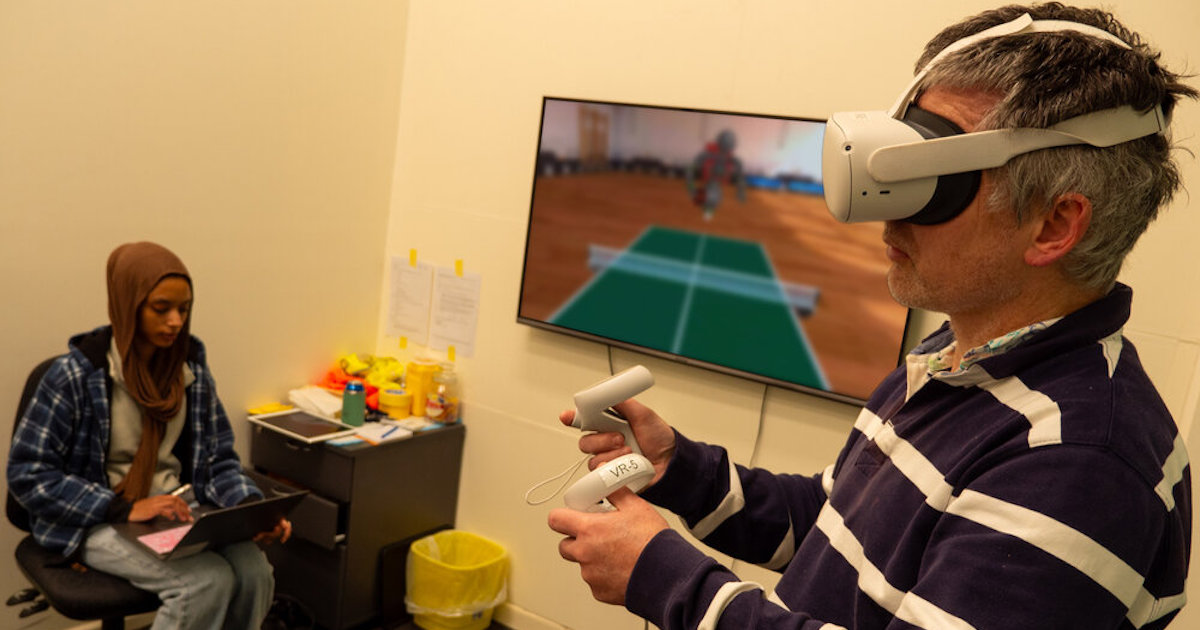Virtual reality helps people with hoarding disorder practice decluttering
SOURCE: HTTPS://WWW.SCIENCEDAILY.COM/
OCT 16, 2023
New VR programme promotes exercise among people with intellectual disabilities
SOURCE: HTTPS://WWW.MOBIHEALTHNEWS.COM/
AUG 28, 2023

Flinders University researchers have developed a virtual reality-based programme to encourage people with intellectual disabilities to do regular physical exercises.
WHAT IT'S ABOUT
According to a media release, they have recruited 16 volunteer participants from the Bedford Group – a major employer of people with intellectual disabilities in Australia, to join the eight-week exercise programme using a commercially available VR system.
The participants are required to finish a one-hour supervised session three times per week, with each session including 50 minutes of exercise using a popular game app, such as Dance Central, Beat Sabre, the Thrill of the Fight, and Space Pirate Trainer.
The researchers then monitor and record their heart rate, rate of perceived exertion, and intensity volume to track their physical improvements.
WHY IT MATTERS
Most Australians with developmental disabilities are not meeting the globally recommended minimum amounts of physical activity for good health, according to Dr June Alexander, a lecturer in Disability and Inclusion at the Flinders University College of Nursing and Health Sciences. This increases their risk of developing cardiovascular diseases, she added.
It was noted that their tendency to avoid doing regular exercise is due to low motivation and lower access to mainstream health and fitness services like gyms, especially for those living in regional and rural areas.
As the cost of VR systems has dropped in recent years, the technology was considered for its potential to resolve these barriers. It could also be scaled to help more people with intellectual disabilities meet their weekly exercise requirements, said Dr Joyce Ramos, senior lecturer and an accredited exercise physiologist at Flinders University.
THE LARGER TREND
Another recent VR programme, done in New Zealand, explored the use of VR as an intervention tool for people with neurodevelopmental disabilities. The study found that technology can help reduce anxiety and lower the symptoms of depression among them.
ON THE RECORD
"Researching the benefits of [VR] on fitness levels for people with disability is a world first to our knowledge, and a positive step forward using a fun and engaging way to stay active and increase the likelihood of sticking to an exercise routine," Bedford Group COO Rachael Griffiths commented.
LATEST NEWS
WHAT'S TRENDING


Data Science
5 Imaginative Data Science Projects That Can Make Your Portfolio Stand Out
OCT 05, 2022

SOURCE: HTTPS://WWW.SCIENCEDAILY.COM/
OCT 16, 2023
SOURCE: HTTPS://WWW.SCIENCEDAILY.COM/
OCT 16, 2023
SOURCE: HTTPS://WWW.SCIENCEDAILY.COM/
AUG 07, 2023
SOURCE: HTTPS://WWW.SCIENCEDAILY.COM/
JUL 14, 2023
SOURCE: HTTPS://WWW.SCIENCEDAILY.COM/
JUL 13, 2023
SOURCE: HTTPS://WWW.ANALYTICSINSIGHT.NET/
JUN 21, 2023
SOURCE: BY TOM WARREN / @TOMWARREN/ THEVERGE.COM
DEC 15, 2022